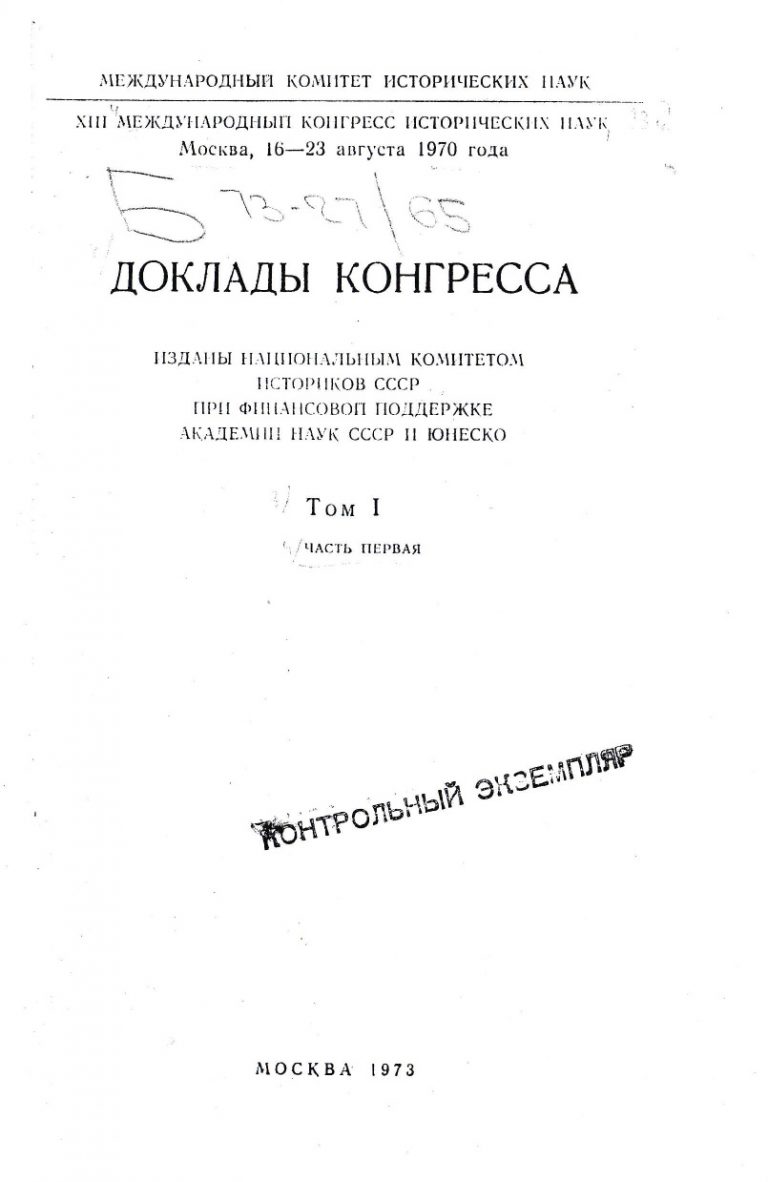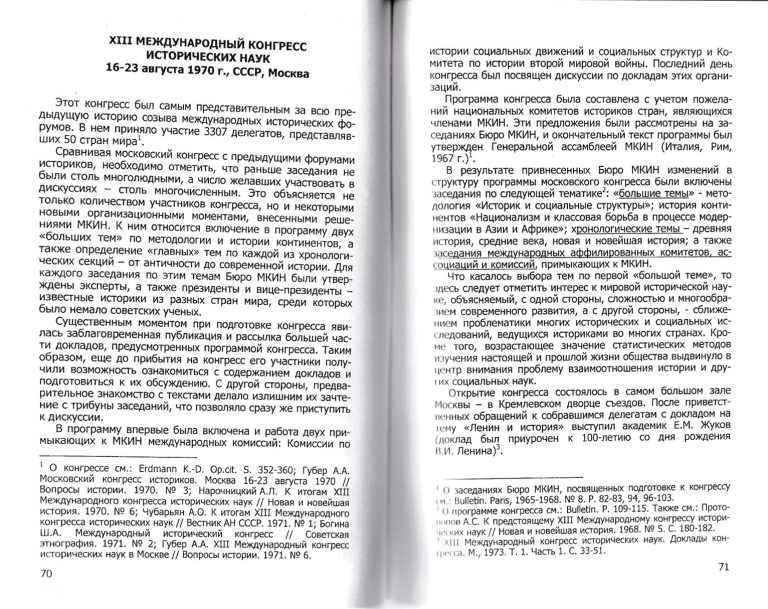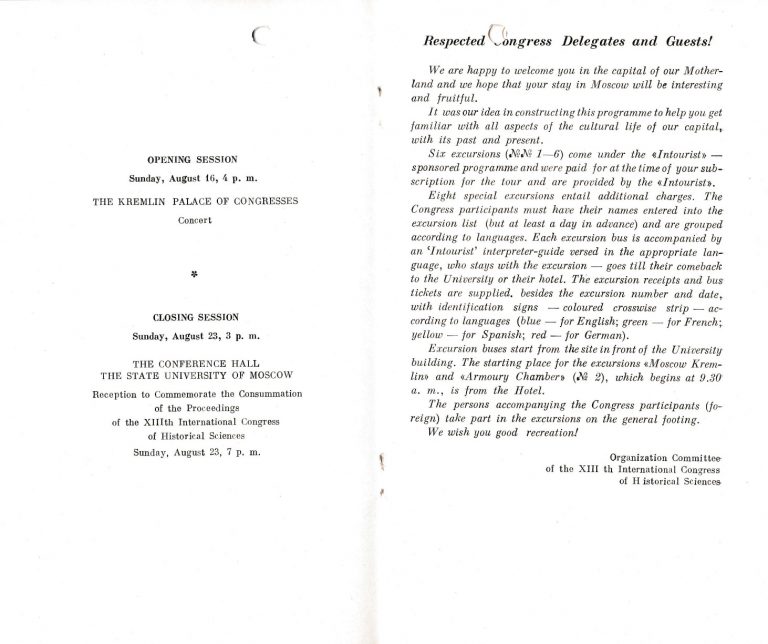The XIII International Congress of Historical Sciences took place in Moscow on 16-23 August 1970. It gathered 3,307 delegates from 50 countries, including as many as 1,283 from the USSR. Quite numerous delegations came from the other states of the Eastern Bloc; Poland sent the largest number of participants (162 scholars), and was followed by Bulgaria (160), GDR (130), and Hungary (110). Furthermore, 223 historians came from the US, 173 from France, 118 from Yugoslavia, and 108 from the Federal Republic of Germany.
The Congress agenda addressed two so-called major themes. One concerned the methodology of history, the other the history of the continents. There were also chronological sections. During the Congress, there were also meetings of multiple commissions and associations affiliated at CISH, including the Committee for History of Second World War, Commission of Military History, Commission for Studies on the History of Social Structures and Movements, of the International Association of Byzantine Studies, International Association of the History of Law and Institutions, Commission of the History of the Press, Commission of Historical Slavic Studies, Commission for the History of Towns, Commission for the History of Universities, the Bibliographic Commission, and the Commission on the History of French Revolution. A special symposium was dedicated to the role of Vladimir Lenin in the development of the historical sciences, with a lecture by Yevgeniy Zhukov titled Lenin and History.
Relevant literature dedicated to the Congress indicates that it was attended by the highest number of participants in the history of these events. Its special merit lay in the identification of two main themes and a chronological division of the other sessions. The organisation and preparation were spoken highly of, as was the fact that the Congress was held in an air allowing a free exchange of ideas and views.
Some of the lectures, upon their approval by the Presidium of the Congress, were translated, printed out and handed out or sent in advance to the debate participants.
Apart from the Congress scholarly agenda, the participants had at their disposal all kinds of tourist attractions, such as tours of Moscow, with its museums, galleries and Orthodox churches.
Bibliography
- XIII Mezhdunarodnyj Kongress Istoricheskikh Nauk 16-23 avgusta 1970 g., SSSR, Moskva, in: Rossijskie istoriki na mezhdunarodnykh kongressakh istoricheskikh nauk 1900-200 gg. Istoricheskij obzor, ed. Sergej L. Tikhvinskij, Moskva 2005, p. 70-83.
- XIII Mezhdunarodnyj Kongress Istoricheskikh Nauk Moskva, 16-23 avgusta 1970 goda. Doklady kongressa, v. 1, Moskva 1973.






